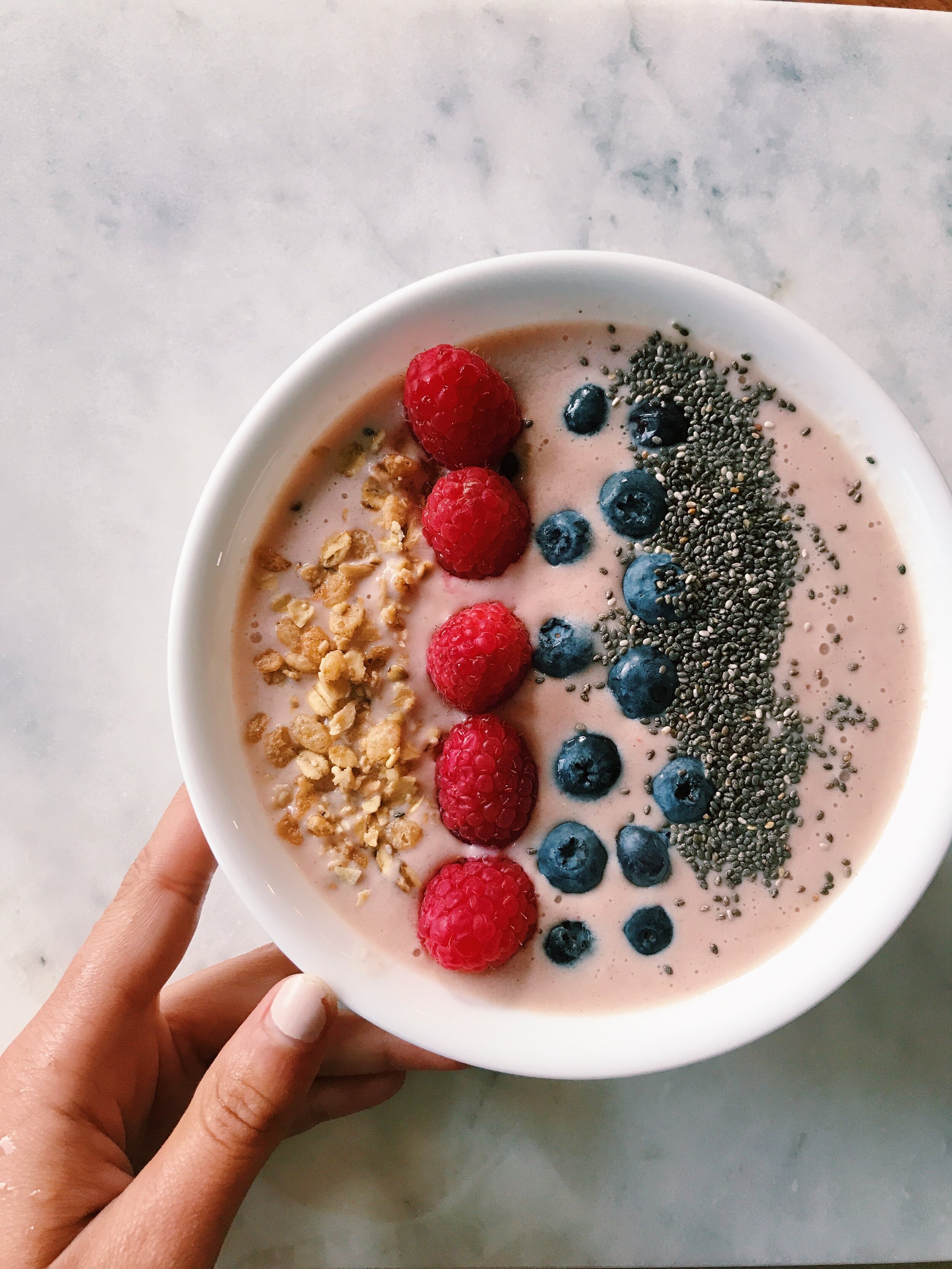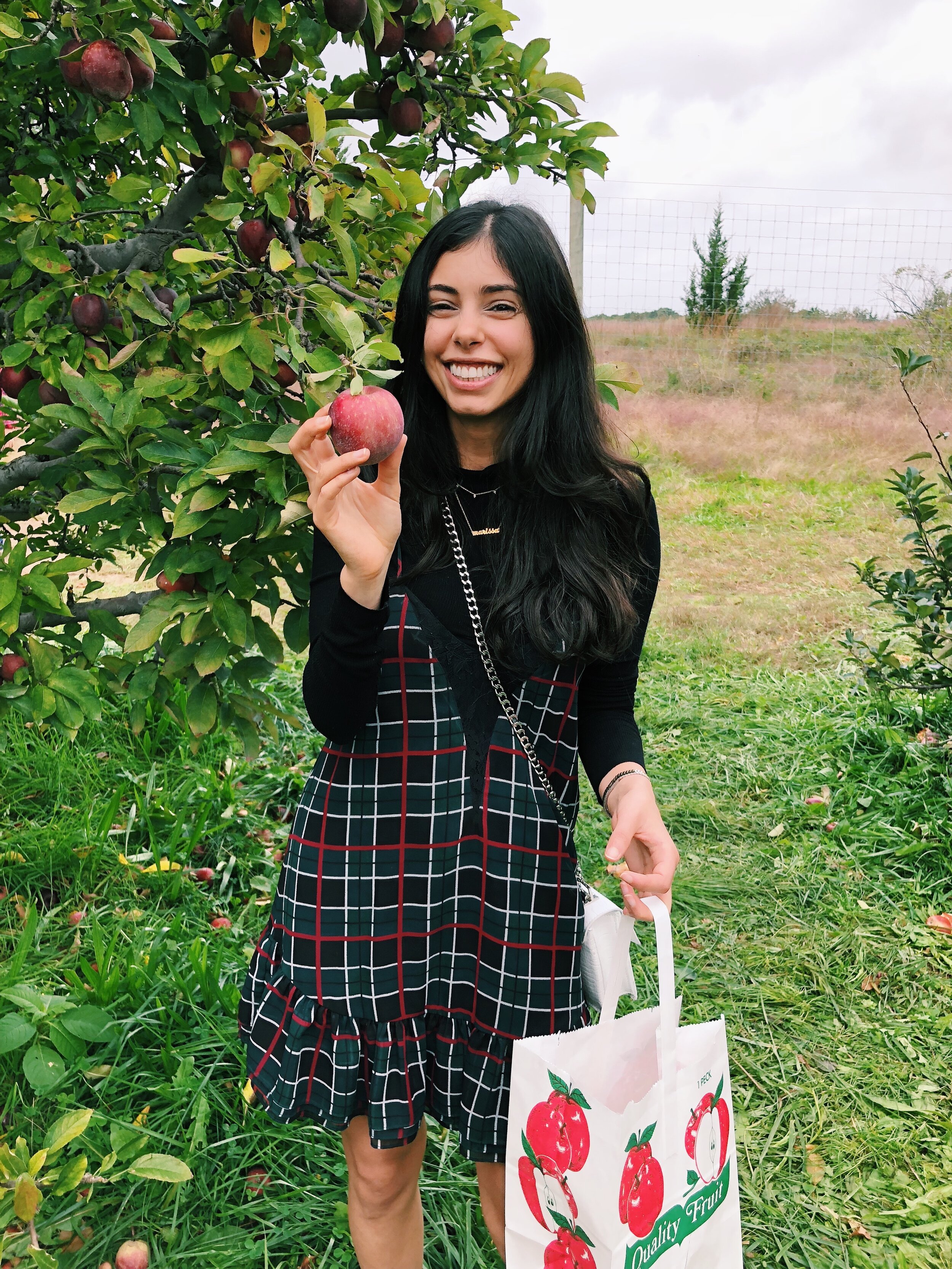The Truth About Fruit
“You eat bananas? They have so much sugar” - Karen
*Insert annoyed cringe*
Yes - fruit has sugar. But does that mean we should avoid it like the plague? Is there such thing as too much fruit? Are certain fruits better than others? Answering all of your fruit questions today as we decode THE TRUTH ABOUT FRUIT.
What is fruit?
First, let’s define what fruit is. According to a quick google search I just did, fruit can be defined as “the sweet and fleshy product of a tree or other plant that contains seed and can be eaten as food.” Per this definition, many foods that we typically classify in other categories are actually fruits (avocados, tomatoes and bell peppers to name a few). For the sake of this conversation, when I am saying fruit, I am referring to those sweet foods that are commonly thought of as fruits (bananas, berries, pineapple, apples, pears, peaches, watermelon, cherries, etc.) .
What are the benefits of fruit?
Fruits have so many wonderful health benefits. They are very high in vitamins and minerals, essential components we need for our bodies to function properly. Fruits also contain very high amounts of antioxidants, which keep us healthy by fighting off cellular damage.
Cool tip: the different colors in various fruits (and veggies) are indicative of different benefits. For instance, the blue/purple hue (think blackberries) indicate a fruit is rich in anthocyanins, which are antioxidants revered for their benefits on blood pressure and overall heart health. Yellow/green produce (think kiwis) are rich in lutein, which is known for its benefits on eye health. Cannot say it enough, but food is medicine!!
Fruits are also high in fiber, which is a key determinant in differentiating the sugar in fruit compared to the sugar in sweets. Fiber is a type of non-digestible carbohydrate (meaning our bodies cannot break it down and therefore cannot extract energy from it). Since we cannot absorb the fiber, it helps slow down our blood sugar response, meaning that we don’t go through crazy blood sugar changes like we would when we eat desserts or drink soda.
To read more about the differences between added and natural sugars, check out this article I wrote. Short summary: no, the sugar in bananas and the sugar in soda are not equal. You get additional health benefits from bananas that you do not get from soda, regardless of the sugar.
Are some fruits better than others?
Fair question. According to diet culture, we should all skip bananas and shift our focus solely on berries. There are two parts to understand here. First of all, all fruits contain different amounts of sugar and fiber. Berries have been touted as the “weight loss fruit”, since they are higher in fiber and lower in sugar. Bananas on the other hand have been demonized given their “higher sugar content”.
Let’s compare the two. 1 medium banana has about 14 grams of sugar and 3 grams of fiber. 1 cup of berries has about 8 grams of sugar and 6 grams of fiber. So yes, berries have more fiber and less sugar than a banana. But does that mean they are inherently “better”?
NO! This brings about point number 2. The same way I mentioned that different colored fruits have different nutrient compositions, bananas and berries are both beneficial in different ways. That 1 medium banana gives you just under 15% of your daily potassium needs AND 20% of your daily vitamin b6 requirements. While the berries provide you with 70% of your vitamin C needs and are rich in antioxidants. We need all of these things. You know the saying, “it’s like comparing apples to oranges”. Alas - we shouldn’t be comparing fruits. They are inherently different foods, composed of different amounts of sugar, fiber, vitamins and minerals.
Is there such thing as too much fruit?
Well, yes and no. You can technically overdo it on just about anything, but our health issues in the US are not a result of overdoing it on mangos (I promise). As a general rule of thumb, most of us could benefit from 1-3 fist-sized pieces of fruit per day. If you are eating fruit more often than this you tend to be skipping out on other nutritious foods that can make wonderful snacks (nuts, veggies, etc.). BUT this amount is general and nutrition is very individualized, so if you eat more or less fruit please do not freak out.
One thing I will say: if fruit is serving as your snack, I want you to pair it with some fat or protein. Since fruit does contain some sugar, eating it on its own can leave us hungry soon after. Try an apple with peanut butter or some strawberries and a cheese stick. This will make the snack more filling and help satiate you until your next meal.
Is fresh better than dried?
Go for fresh instead of dried most of the time. This is for a few reasons. Number 1: lots of dried fruit has sugar added to the outside of it for preservative reasons. As we’ve established, fruit is sweet on its own. If you are choosing a dried fruit, look for ones dried without added sugar (ingredients should just be the fruit, i.e. mango).
Number 2: you tend to eat way more when you choose a dried vs. fresh fruit. Without all of the hydrating water that normally comes along with fruit, dried fruit becomes much smaller than its fresh counterpart. Despite it’s smaller size, it has the same nutrition (calories, sugar, etc.) meaning you are way likely to end up consuming more without realizing. Think about a dried apricot. It is so easy to pop 6 of those in your mouth without thinking twice, whereas it would take you much longer to actually eat 6 fresh, whole apricots.
Should I only eat fruit in the morning on an empty stomach?
Ah, food combining. The health influencers bread and butter. The truth is, there is no real evidence to suggest this works. Our digestive tract is not a conveyor belt. When we eat foods that contain different macronutrients (protein, fat, carb) we have different enzymes released to breakdown those different components. This suggest that it doesn’t matter if we eat fruit solo or with other foods, our bodies should be releasing enzymes for those variable components to digest them at the same time.
NOW, gastrointestinal health is very nuanced. Our gut microbiome can really affect how our digestion is handled and everyone has a very individualized GI tract for that reason. Given that, if you have tried food combining and it feels better for you - more power to you! Nutrition is not one size fits all and listening to your body is key. I am a proponent of anything that makes you feel better. My main caution against it is if it feels like you are unnecessarily restricting foods due to all the rules, let’s leave it behind.
Can I eat fruit at night?
So now that we know you can eat fruit at other times of day and not just in the morning, it begs the question - can I eat fruit at night? Simple answer: YES! While fruit can be a great midday energy boost (especially pre-physical activity), it doesn’t really matter when you are having it. Would I eat 3 cups of fruit right before bed? Probably not, just because it might upset your stomach or the sugar might wake you up a bit. But is a little bit of fruit post dinner as a sweet treat okay? Absolutely! Bonus points if you choose cherries, as they contain some melatonin and might actually mellow you out a bit before bed. I personally love some frozen cherries with chocolate chips and granola butter for dessert. YUM.
My thoughts on fruit
I love fruit. I really love anything that is naturally grown. Find the ones you enjoy and eat those. There are enough nutritious foods in this world and life is too short to ever eat foods you don’t enjoy. Can we overdo it? Sure, you can overdo anything. If you are eating fruit 4+ times a day, you are probably missing out on other food groups you could be snacking on (nuts, veggies, etc.). Should you ever feel guilty about eating fruit? NO. Guilt is not an ingredient. Fruit is literally made by the earth. Enjoy it. :)
Ready to break free from diet trends and finally take charge of your health? That's where MPM Nutrition comes in. Whether you're looking to transform your relationship with food, elevate wellness in the workplace, or create nutrition content that truly connects, we’re here to help.



